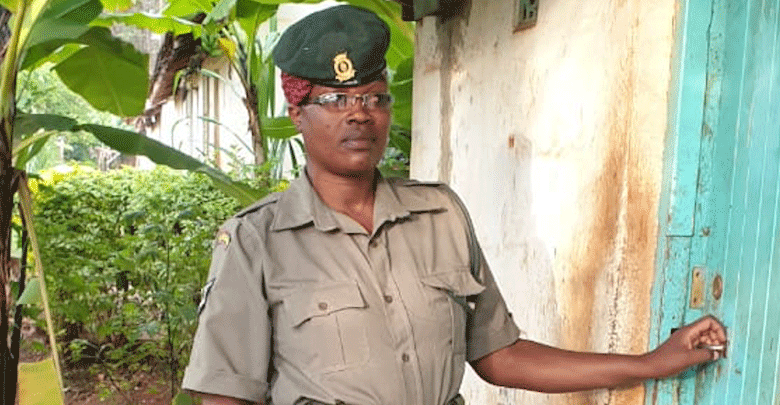Inner light gets me through darkness
By Wangari Njuguna, April 13, 2021
Becoming visually impaired as an adult is no doubt devastating to anybody. Like any other major life condition, vision loss can bring feelings of loneliness, helplessness, anxiety, and depression.
Patients wonder about their ability to maintain their independence, retain employment, and provide for themselves and their families, among other issues.
And even for those who decide to pick up their pieces, adjusting to the new life is no easy thing.
Yet some decide to face the new life head-on and even manage to live a better and fulfilled life.
Such is the case of Ester Nyawira Kamindo a prison warden attached to Murang’a GK Prison.
She lost her eyesight in 2014 and after grieving her loss, she put a brave face and soldiered on.
Nyawira says the loss of her ability to see was as a result of diabetes, which she has been battling for a couple of years.
Too much sugar in your blood can damage your retina — the part of your eye that detects light and sends signals to your brain through a nerve in the back of your eye (optic nerve).
Diabetes damages blood vessels all over the body. The damage to your eyes starts when sugar blocks the tiny blood vessels that go to your retina, causing them to leak fluid or bleed.

To make up for these blocked blood vessels, your eyes then grow new blood vessels that don’t work well. These new blood vessels can leak or bleed easily.
Picking up the pieces
After realising she was having issues with her sight, she sought medical attention hoping it would be rectified.
However, as fate would have it, the damage done by the disease to her eyes was irreversible and the news that she will never regain her ability to see nearly shattered her world.
Aware of the stigma that faces people with disability, she deeply reflected on how her immediate family, friends and workmates would react to her new condition.
At one point, Nyawira contemplated committing suicide. But she fought those though she was not sure how she would live a life in darkness.
“If I heard of any relative who had died, I wished I was the one. I was feeling so hopeless and desperate,” Nyawira recalls.
She lost some of her close friends who saw her as a bother as she would often require assistance to move around and carry out various duties.
Luckily for her, she did not lose her job. Her family, too, was of great support to her though it was hard for them to come to terms with her blindness.
Therefore, Nyawira decided not to wallow in self-pity. “I had to learn to do things differently— from learning to use brail and moving around with a white cane,” she says.
In 2015, she went to Machakos Technical Training Institute for the Blind for a rehabilitation programme for a couple of months. She also underwent counselling in 2016 to help her cope.
Nyawira thought of a way she could become an inspiration to her colleagues and people around her.
So in 2017, she enrolled for a theology course, which she completed in 2019. In December the same year, she was ordained as the first Anglican visually impaired deacon in the country.
On March 26, this year, she got another ordination into priesthood and became a reverend.
Remaining positive
This, she says, was a fulfillment of her heart desires—to reach out to many people and give them hope amid the challenges they face in life.
The mother of three says life is a matter of being resilient and refusing to give up no matter the circumstances one finds themselves in.
“Blindness put me down, but not out. I knew there are people who still needed me, especially my children and that’s why I decided to fight,” she adds.
Laban Gichohi, Nyawira’s husband says it has not been a smooth sail to get to where they are today.
He says he had to remain positive and focused on helping his wife to achieve her dreams even when people stigmatised and talked ill of her.
Gichohi says in most cases when a misfortune befalls one member of the family, the rest tend to turn their backs on them, but he chose to do things differently.
“I made a promise to stick to her at all times. And despite her condition, she also inspires me in many ways,” he says.
“She has learnt to do a lot of things by herself even in raising our three children. She can cook and even wash clothes without any assistance,” he adds.
Peter Kubunde, officer in charge Murang’a Prison says Nyawira stands out among other officers in the facility and she does not let her condition put her down.
Kubunde says Nyawira has become a role model to her colleagues and inmates and she often interacts with them to provide counselling services.